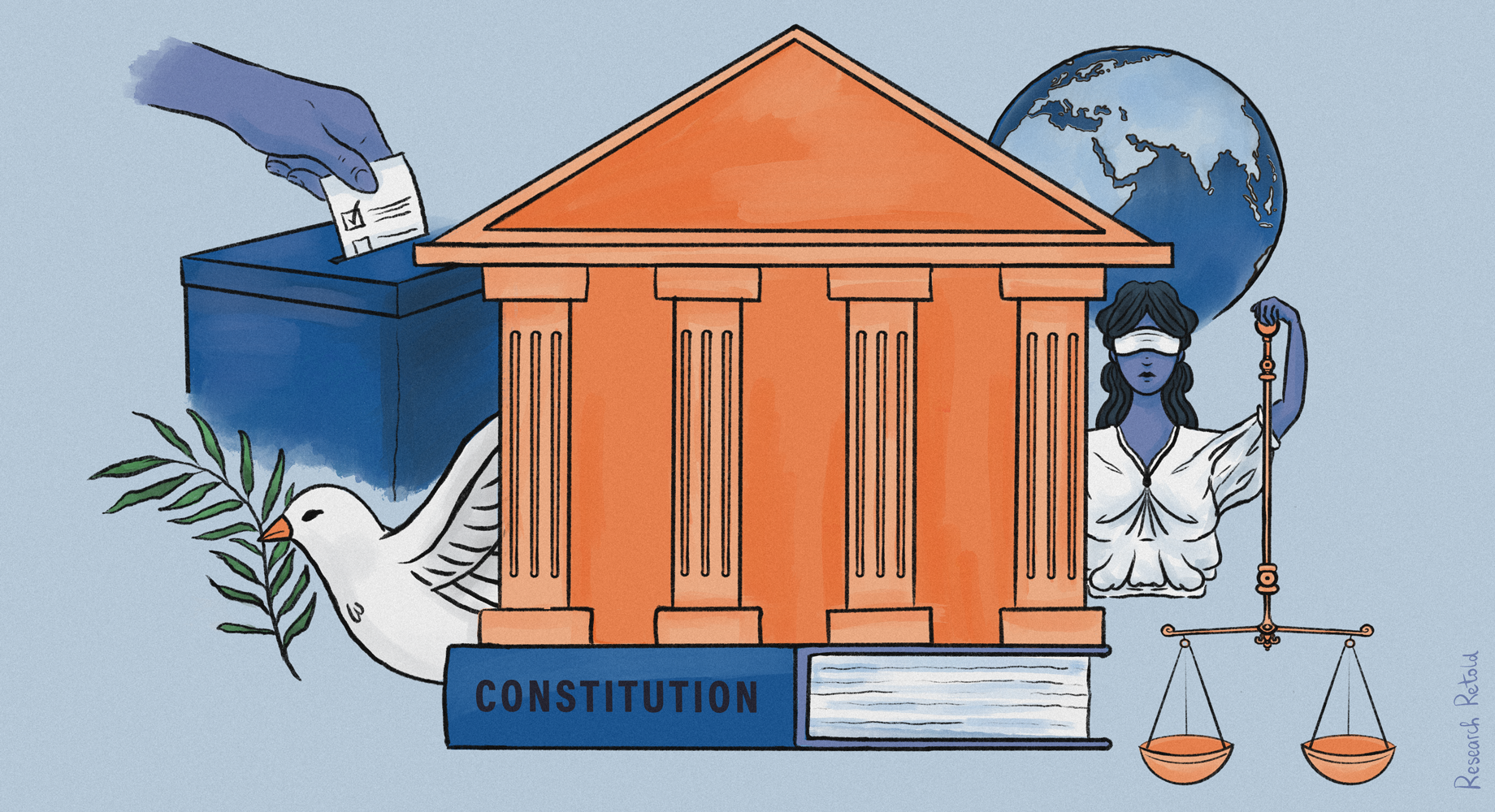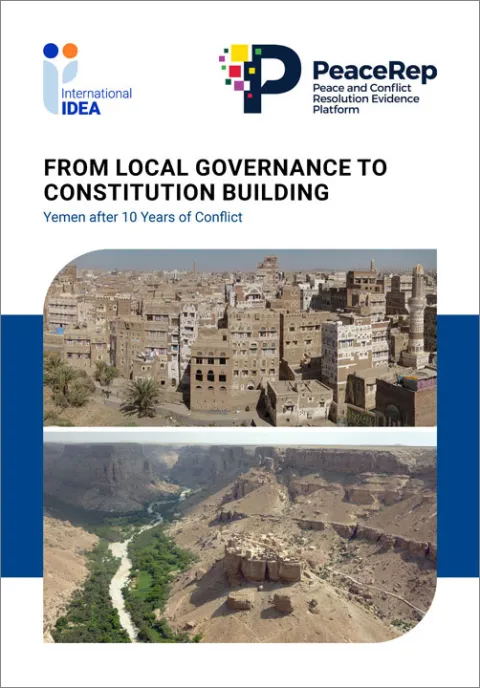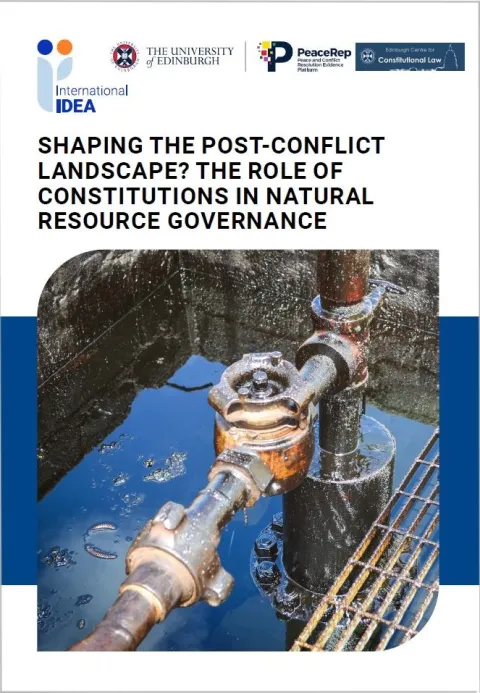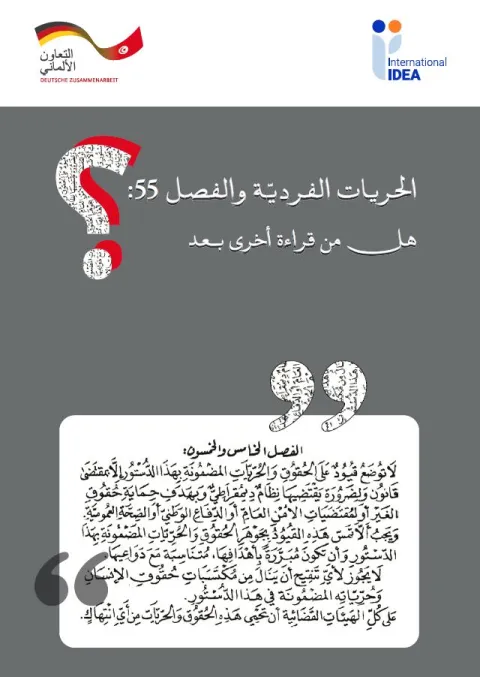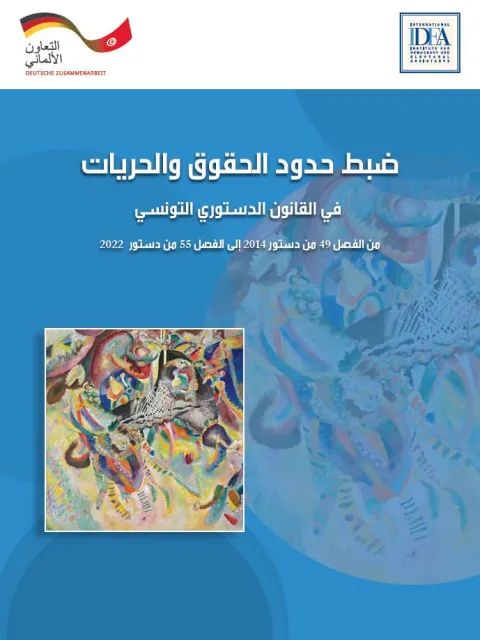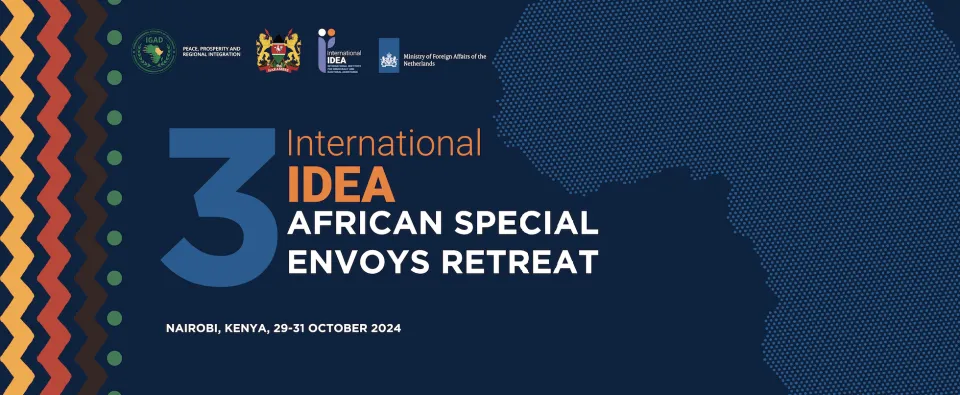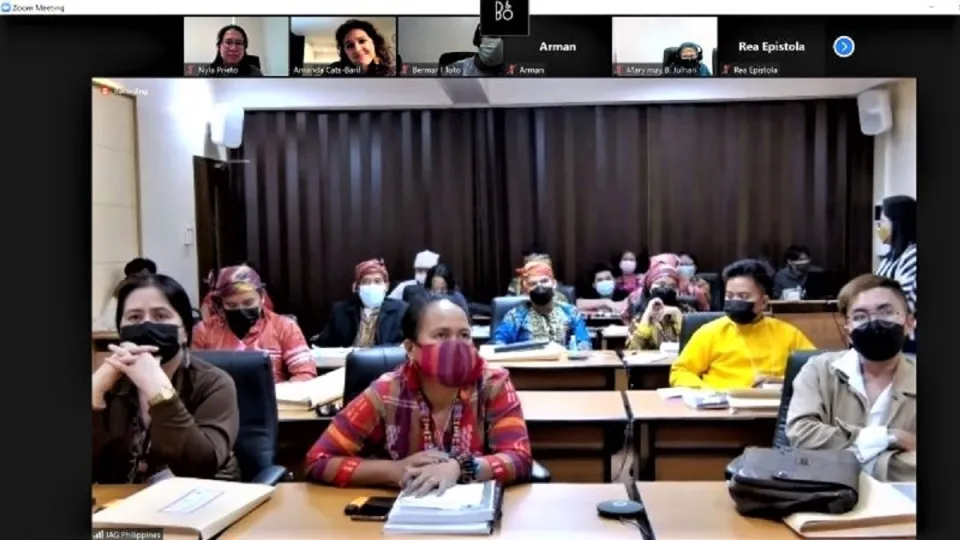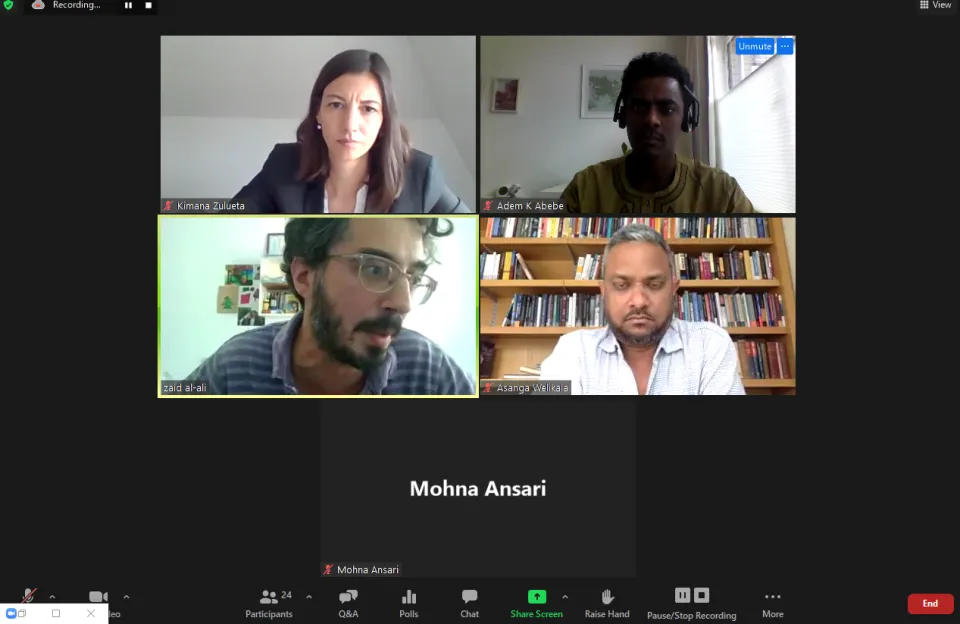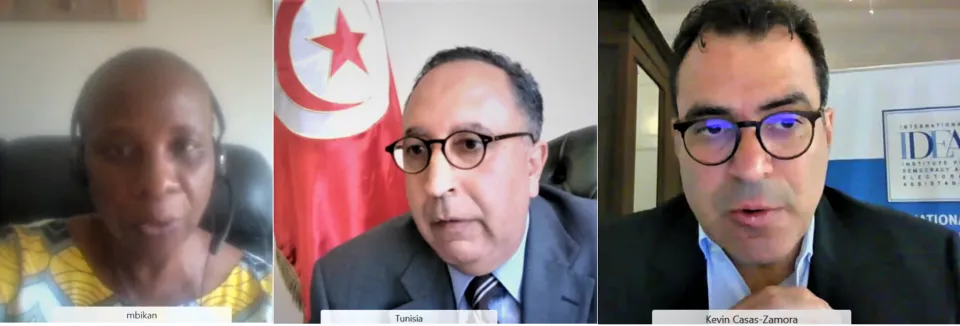The Tunisian Constituent Assembly’s By-laws: A Brief Analysis
In December 2010, the Tunisian people ignited a process of change that has impacted all of North Africa.
A Constituent Assembly was elected in October 2011, which had as its main mission to elaborate the country’s and the region’s first truly democratic constitution. One of the Assembly’s first acts was to draft and approve its rules of procedure (or by-laws), which are designed to organize the constitutional drafting process, as well as the ordinary legislative process.
This publication is the first in a series that International IDEA will be publishing on constitutional developments in West Asia and North Africa since 2011. The authors of this report highlight many of the strengths and weaknesses of the rules of procedure. They also set out a series of recommendations that can be used to improve the Assembly’s effectiveness, or that of Tunisia’s future legislative body.
Details
Contents
Foreword
Executive summary
Tunisia’s constitutional context
The drafting process and final text
Substantive overview
The lawmaking process
Legislative oversight
Committees
The constitutional drafting process
The Constituent Assembly’s administration
Conclusion
About the authors
Endnotes
About International IDEA
Give us feedback
Do you have a question or feedback about this publication? Leave us your feedback, and we’ll get back to you
Send feedbackThe Tunisian Constituent Assembly’s By-laws: A Brief Analysis
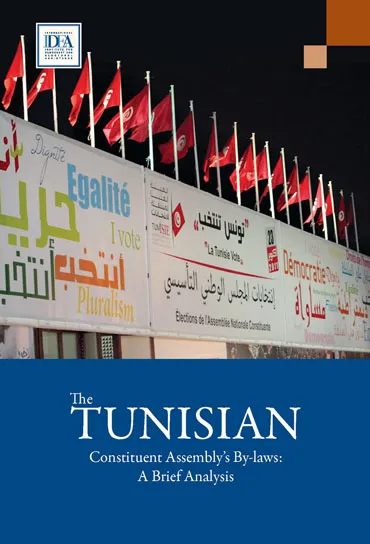
| Total views | 5307 |
|---|---|
| Downloads | 20 |
| Rating |
Give us feedback
Do you have a question or feedback about this publication? Leave us your feedback, and we’ll get back to you
Send feedback